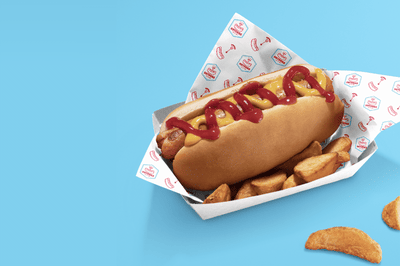Whether you run a bustling café, a weekend market stall, or a mobile coffee van, your takeaway coffee cups aren’t just functional, they're part of your customer experience, brand identity, and sustainability impact. Before placing your next order, here’s what every food and beverage business should consider.
In Australia, rules differ by state and update frequently - the tips below help you order cups that work and stay compliant.
Material Matters: Paper vs. Plastic vs. Compostable
Your choice of cup material affects not only the feel and performance but also your environmental impact and compliance with regulations.
-
Double-wall paper cups offer excellent insulation — ideal for hot beverages. WA/SA check: Only buy double-wall cups that are AS 4736 or AS 5810 certified compostable for WA/SA; non-compostable paper cups are not lawful in WA and are restricted in SA. Use plastic-free fibre/pulp lids in WA.
-
PLA-lined compostable cups are plant-based and certified for commercial composting. What to verify: Ask for current AS 4736 (industrial) or AS 5810 (home) certificates for each SKU and keep them on file.
-
PE-lined paper cups are still widely used but may not meet new single-use plastic regulations in some Australian states. Where allowed now: Generally permitted in NSW/VIC/QLD (EPS cups are banned); not permitted in WA and restricted in SA unless AS-certified compostable.
Quick state snapshot: WA - non-compostable cups & all plastic lids (incl. CPLA) banned; SA - cups/lids must be AS-certified and clearly labelled from 1 Mar 2026; NSW/VIC/QLD - EPS cups banned, paper cups still allowed; ACT/TAS/NT - phase-outs/act frameworks progressing; check item specifics.
Sustainable Choices: Why It’s More Than a Trend
Consumers are increasingly making choices based on environmental values. Using eco-friendly takeaway coffee cups with recyclable lids or compostable options helps reinforce your brand as forward-thinking and responsible.
Look for:
-
Certified compostable cups (AS 4736 or AS 5810 on the certificate, not just “compostable” wording)
-
Lids made from CPLA or sugarcane, note: WA bans all plastic lids, including CPLA - choose fibre/pulp lids there)
-
Minimal or soy-based inks for printing (and ensure compostable items are clearly labelled in SA from 1 Mar 2026)
Claims that stick: Only say “recyclable” if it’s accepted locally; most lined paper cups aren’t in standard kerbside. If you say “compostable,” confirm access to commercial composting in your area. Keep evidence to satisfy ACCC green-claims guidance.
Custom Branding: Printing That Makes an Impression
Your coffee cups are walking billboards. Custom printing helps you:
-
Strengthen brand recognition
-
Create an Instagram-worthy takeaway moment
-
Communicate your story (or even a QR code)
At Cup & Carry, we offer low minimums and fast turnaround for branded coffee cups — so you can stay agile and on-brand. Compliance on the artwork: Add approved “compostable” marks (SA from 1 Mar 2026), a disposal cue (e.g., “commercially compostable where accepted”), and a QR code to your certification page. Avoid vague leaves/earth icons that could mislead.
Sizes & Specs: Don’t Guess — Get It Right
Most businesses order 8oz, 12oz, and 16oz cups to cover the full range of flat whites, lattes, and long blacks. But depending on your clientele, location, and drink offerings, you might need more specific sizing or lid compatibility.
✔️ Always check:
-
Cup volume (oz/ml) (+ a fill line that matches your recipes for consistency)
-
Lid fit (standard or slim) (WA requires plastic-free fibre lids)
-
Stackability for storage (test a full sleeve on your machine and pass-through)
Need help deciding? Our team is happy to provide guidance based on your volume and service flow.
Pro tip: Get a “supplier declaration” confirming fitness for food contact (FSANZ 3.2.2) alongside your AS certificates.
Regulations and Compliance
Many states in Australia are enforcing single-use plastic bans. Some also have strict rules about greenwashing and labelling compostable items.
Ensure your takeaway cups are compliant with current legislation in your state, especially if you operate in SA, QLD, or ACT.
What this means in practice: WA - order AS-certified cups + fibre lids only; SA - cups/lids must be AS-certified and clearly labelled by 1 Mar 2026; NSW/VIC/QLD - avoid EPS, paper cups permitted; QLD demands AS certification for compostables; ACT/TAS/NT - check current item lists before ordering.
Documentation to keep: AS 4736/5810 certificates, FSANZ food-contact declaration, and substantiation for any environmental claims (per ACCC).
Bulk Orders vs. Small Runs: What Works Best?
If you’re just starting out or testing a new design, short-run custom printing gives you flexibility.
For larger operations or franchises, bulk orders can significantly reduce your cost per unit.
At Cup & Carry, we offer both options — plus storage solutions if space is tight.
In Summary
The right takeaway coffee cup can elevate your brand, streamline operations, and meet compliance standards—all while delighting your customers.
Before you order, consider:
-
Material and sustainability (prefer AS 4736/AS 5810 options where possible)
-
Custom branding needs (include compliant compostable labels/claims)
-
Local compliance (WA bans plastic lids; SA needs compostable labelling from 1 Mar 2026; NSW/VIC/QLD ban EPS)
-
Practical sizes and volumes (add fill lines; confirm fibre-lid fit for WA)
-
Minimum order quantity vs. bulk pricing (keep certificates and FSANZ declarations on file)
Ready to order or want advice on what’s best for your business?
Chat with the Cup & Carry team today — we’ll help you find a smart, sustainable solution that fits your brand and budget.









